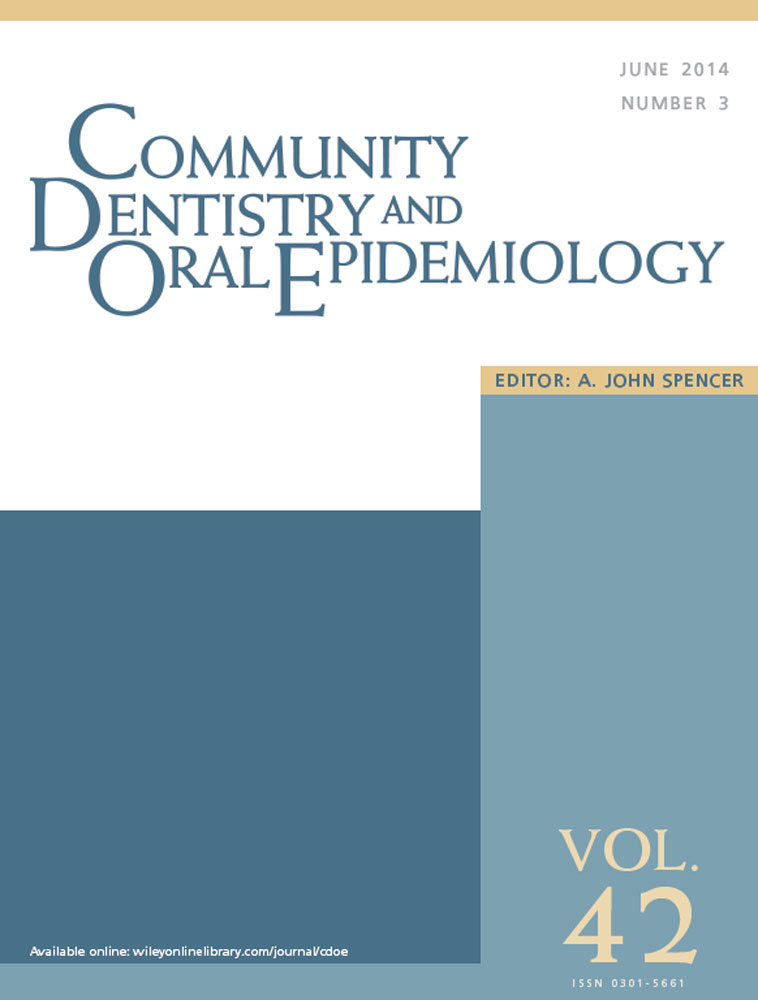The role of family functioning in childhood dental caries
Abstract
Objectives
This study investigated the relationship between family functioning and childhood dental caries. Further objectives were (i) to explore whether oral hygiene behaviours could account for a possible association between family functioning dimensions and childhood dental caries and (ii) to explore whether family functioning could mediate the relationship between sociodemographic factors and childhood dental caries.
Methods
A random sample of 630 5- to 6-year-old children was recruited from six large paediatric dental centres in the Netherlands. Children's dmft scores were extracted from personal dental records. A parental questionnaire and the Gezinsvragenlijst (translation: Family Questionnaire) were used to collect data on sociodemographic characteristics, oral hygiene behaviours and family functioning. Family functioning was assessed on five dimensions: responsiveness, communication, organization, partner-relation and social network. Associations with dmft were analysed using multilevel modelling.
Results
Bivariate analysis showed that children from normal functioning families on the dimensions responsiveness, communication, organization and social network had significantly lower dmft scores compared with children from dysfunctional families. Poorer family functioning on all dimensions was associated with an increased likelihood of engaging in less favourable oral hygiene behaviours. Children with lower educated mothers, immigrant children and children of higher birth order were more likely to come from poorer functioning families. In multivariate analysis, organization remained a significant predictor of dmft after adjusting for the other family functioning dimensions and the mother's education level, but it lost statistical significance after adjustment for oral hygiene behaviours.
Conclusion
A relationship between family functioning and childhood dental caries was found, which may have operated via oral hygiene behaviours. Family functioning modestly explained socioeconomic inequalities in child oral health. Organization appeared to be the most important dimension of family functioning that influenced children's caries experience.




